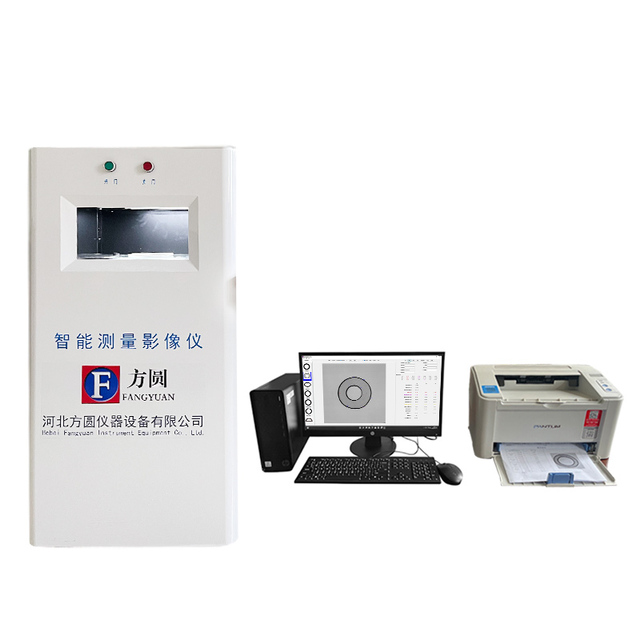Suppliers of Tensile Testing Machines for Material Strength Assessment and Quality Control
Understanding Tensile Test Machines and Their Suppliers
Tensile test machines, also known as universal testing machines (UTMs), play a pivotal role in the materials testing industry. They are designed to evaluate the mechanical properties of materials by applying controlled tension until failure occurs. This testing process helps industries ensure the quality and performance of their materials, and it is used in various fields such as manufacturing, aerospace, automotive, and construction. As the demand for quality and durability increases, selecting the right tensile test machine supplier becomes crucial for businesses looking to enhance their material testing capabilities.
The Importance of Tensile Testing
Tensile testing is a fundamental method for determining how materials behave under tension. The test provides essential data such as yield strength, ultimate tensile strength, elongation, and reduction in area—all of which are vital for engineering and design decisions. Industries utilize this information to understand material limits, prevent structural failures, and adhere to safety regulations.
A tensile test machine operates by gripping a sample material at both ends and gradually pulling it apart until it fractures. The machine records the force applied and the corresponding elongation of the material. The resulting data not only helps in evaluating the material’s strength but also in understanding its ductility and toughness, which are critical parameters in material selection and application.
Features to Look for in a Tensile Test Machine
When selecting a tensile test machine, it is important to consider several key features and specifications
1. Load Capacity Depending on the materials being tested, the machine must have an adequate load capacity. Common ranges can vary from a few Newtons for soft materials to several hundred kilonewtons for metals.
2. Testing Speed The speed at which the test is conducted can influence the results. Different materials may require varying testing speeds, so flexibility in this area is important.
3. Data Acquisition and Software Modern tensile test machines come equipped with sophisticated software for data analysis and reporting. Easy-to-use interfaces and robust data management systems can significantly enhance productivity.
4. Accessories and Adaptability The ability to add accessories such as extensometers, environmental chambers, and different grips enables the testing of a broader range of materials and conditions.
tensile test machine supplier

Choosing the Right Supplier
Choosing a reliable tensile test machine supplier is as important as selecting the right equipment. Here are some factors to consider when evaluating potential suppliers
1. Reputation and Experience Suppliers with a proven track record in the industry are more likely to provide quality machines and support. Research their history, client testimonials, and case studies.
2. Technical Support and Service Good after-sales service can make a significant difference. Check if the supplier offers training, maintenance, and quick access to spare parts.
3. Customization Options If your materials have specific testing needs, consider suppliers who can customize their machines to meet these requirements.
4. Innovation and Technology The testing industry is continually evolving, with advancements in technology. Look for suppliers who offer state-of-the-art machines that incorporate the latest innovations for improved testing effectiveness.
5. Cost vs. Value While budget is a key concern, purchasing the cheapest option may lead to increased costs in the long run due to maintenance issues or inadequate performance. Focus on the overall value provided by the supplier.
Conclusion
In conclusion, a tensile test machine is an essential investment for any business involved in material testing and analysis. By understanding the importance of these machines, their key features, and the factors to consider while selecting a supplier, businesses can make informed decisions that enhance their product quality and reliability. A careful selection of a reputable tensile test machine supplier not only ensures access to superior testing equipment but also supports ongoing technical assistance and innovation in material testing practices. With the right partner, businesses can achieve greater confidence in their materials and ultimately improve their operational success.
-
Why the Conductor Resistance Constant Temperature Measurement Machine Redefines Precision
NewsJun.20,2025
-
Reliable Testing Starts Here: Why the High Insulation Resistance Measuring Instrument Is a Must-Have
NewsJun.20,2025
-
Flexible Cable Flexing Test Equipment: The Precision Standard for Cable Durability and Performance Testing
NewsJun.20,2025
-
Digital Measurement Projector: Precision Visualization for Modern Manufacturing
NewsJun.20,2025
-
Computer Control Electronic Tensile Tester: Precision and Power for the Modern Metal Industry
NewsJun.20,2025
-
Cable Spark Tester: Your Ultimate Insulation Assurance for Wire and Cable Testing
NewsJun.20,2025
 Copyright © 2025 Hebei Fangyuan Instrument & Equipment Co.,Ltd. All Rights Reserved. Sitemap | Privacy Policy
Copyright © 2025 Hebei Fangyuan Instrument & Equipment Co.,Ltd. All Rights Reserved. Sitemap | Privacy Policy
